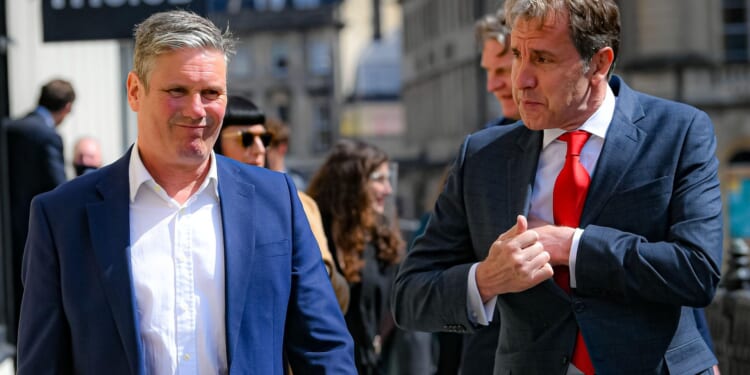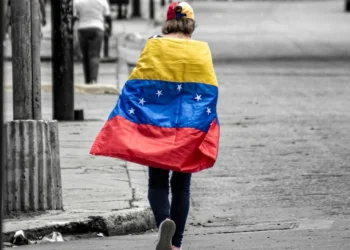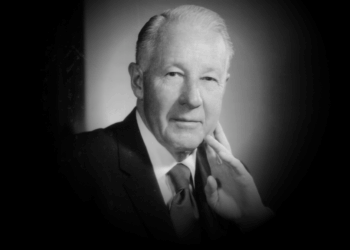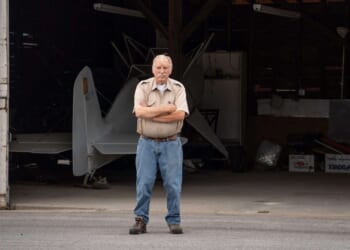A migration catastrophe with deeply ominous portents for ‘open doors’ Britain is unfolding 21 miles away across the Channel.
Multitudes of destitute and desperate men originating from across the world are in the French city of Calais, which increasingly resembles a giant refugee encampment.
In the many years I have reported on the migration crisis sweeping Europe, I have never seen the ferry port so overwhelmed.
This week I watched as yet more people arrived, having fled or been driven out of other countries in Europe which are clamping down on them.
Nearly all of them are men – I have seen only one female migrant in four days – awaiting the traffickers’ boats that leave from nearby beaches for the UK.
Already this year, 32,000 have made the illegal crossing.
The truth is, Calais has become a firmly established stepping stone on the route to Britain.
Scores of white charity vans with British and French number plates criss-cross the city from dawn to dusk delivering rice meals and water to the foreigners who live rough in woodlands near suburban streets, in charity tents perched on the quay in front of the Gothic town hall, or in the myriad squalid shanty camps dotted about the city.
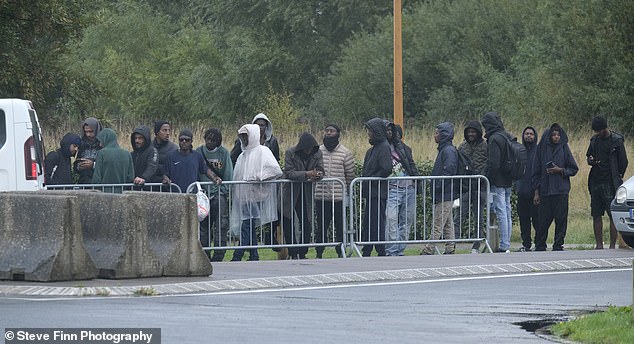
A migration catastrophe with deeply ominous portents for ‘open doors’ Britain is unfolding 21 miles away across the Channel. Pictured: Feeding stations around the main hospital in Calais
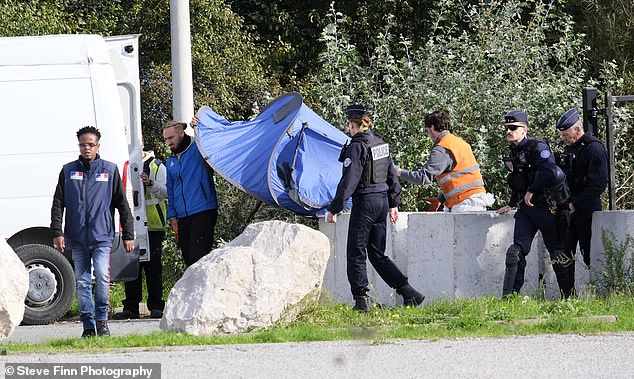
Multitudes of destitute and desperate men originating from across the world are in the French city of Calais, which increasingly resembles a giant refugee encampment. Pictured: French police raid a camp populated by Eritreans and Ethiopians in Calais
The Red Cross is running emergency pop-up medical clinics to treat diseases including diphtheria and tuberculosis.
The Catholic Church has opened shower blocks in special shelters, and there is no shortage of customers.
Plastered on street signs in countless languages are notices from charities giving ‘arrival’ advice on how migrants can find ‘English toilets’, get a human rights lawyer, avoid police trouble, or access charity support to survive the winter ahead.
Huge white water butts are delivered by volunteers for migrants to wash their laundry in public.
Calais is turning into an unrecognisable battleground. On one side are the charities who help what they call ‘exiles’ in the belief that each one is a needy refugee with an absolute human right to live wherever they wish in the world.
Opposing them are the police who drive around watching migrants’ camps through binoculars and, occasionally, making cat-and-mouse raids to disrupt or destroy those camps.
One early morning this week, I witnessed a French riot police operation as a squad carrying guns and face shields moved in to try to dismantle a woodland migrants’ settlement.
Also watching were distressed charity workers, including two young women sitting on the ground who looked as if they might cry.
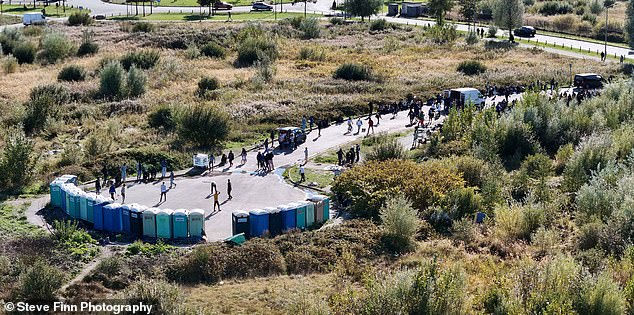
In the many years I have reported on the migration crisis sweeping Europe, I have never seen the ferry port so overwhelmed. Pictured: A new migrant camp in Calais, including toilets and showers
The police arrived in at least 17 vans and disembarked to chase out 50 Eritreans and Ethiopians who had made the wood their temporary home.
Despite their strutting and bravado, the squad left carrying only one bell tent after the migrants simply scattered. They will have regrouped in the same place by now.
In neat suburbs of the city, razor-wire anti-migrant fences line the back gardens of bungalows to stop the newcomers creeping in to sleep on the lawns.
Everywhere, on the promenades, at the bus stops, in the main shopping streets, there are uninvited foreigners.
They ran up to my English car when I stopped at a crossroads and put their hands through the window, saying, simply: ‘Money, London.’
The scenes are a far cry from those I witnessed eight years ago. In 2017, Calais was cleared of migrants on the orders of the government in Paris.
They were pushed en masse further along the coast to Dunkirk or bussed away to live in sports halls, holiday camps, and council accommodation throughout France.
What was once their home, a stretch of land near the port called the Jungle, with tea houses, wooden huts, stalls selling Islamic sweetmeats, and bicycle repair shops, was razed in one grim day.
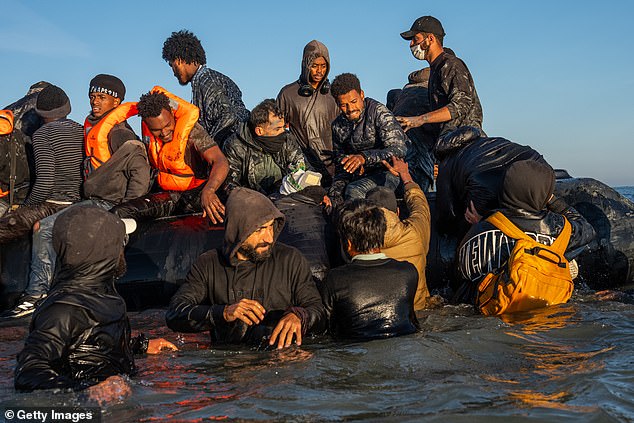
This week I watched as yet more people arrived, having fled or been driven out of other countries in Europe which are clamping down on them. Pictured: Migrants board a dinghy at Gravelines, France, to cross the English Channel on August 25, 2025
Refugee charities across the world and in Britain protested at the ‘cruel evacuation’, but Calais breathed a sigh of relief.
Now the migrants are back because they have run out of options. Countries from Germany to Italy, Denmark to Sweden have turned hostile towards mass immigration, throwing out the people they welcomed into Europe a decade ago, provoking a migration crisis across the continent and in Britain.
Ruthlessly efficient deportation flights are under way from many EU countries. Benefits are being stopped and free housing limited.
‘England is our last hope,’ I was told time and again in Calais this week. ‘We only want London,’ was another refrain.
‘We hate Germany, it is racist,’ said an 18-year-old Sudanese man leaving the Red Cross clinic.
Another, from Iraq, who lived in Malmo in Sweden for four years, showed me his up-to-date Swedish passport. ‘But they give you nothing now in Sweden, so I left there to reach the UK.’
The throngs in Calais hoping for a new British life appear never-ending. Many have come up directly from Italy, where interior minister Matteo Piantedosi says 50,000 souls, penniless and undocumented, have arrived on traffickers’ boats from Libya this year.
‘It is two weeks now since I came to Italy and left immediately for Calais,’ said a 28-year-old Eritrean. ‘Italy doesn’t want us Africans. They wave us through.’
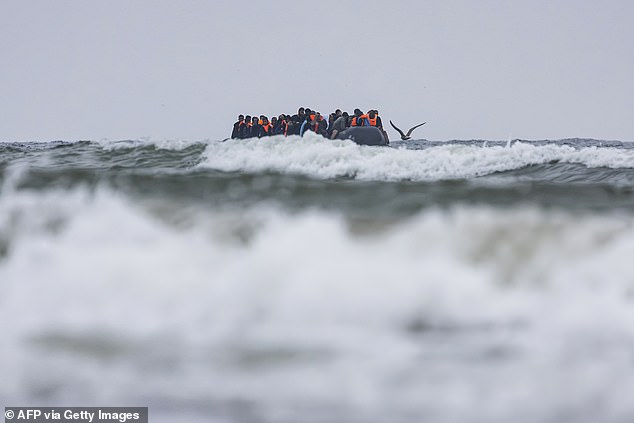
The truth is, Calais has become a firmly established stepping stone on the route to Britain. Pictured: Migrants onboard a smuggler’s boat off the beach of Hardelot, France, to cross the Channel on August 13, 2025
‘I arrived 11 days ago,’ added Nour, a 25-year-old Iranian who was recently thrown out of Bulgaria where he had lived for seven months, learning the language and hoping to settle.
We spoke late in the evening at a woodland camp where 400 migrants from Iraq, Libya, Pakistan, Iran, and Palestine, exist on food and water delivered by charities.
‘All of us want to sail to England. There is no-one here who doesn’t dream of that,’ said Nour as his friends nodded.
The result is that thousands upon thousands are here. Pitifully thin African men on bikes donated by charities, including incongruously pink children’s ones given by groups in London, ride aimlessly around Calais streets.
Others walk around with double mattresses, obtained from goodness knows where, which they drape over stolen supermarket trolleys or carry on their heads as they search for somewhere to put them down to sleep.
Many I spoke to this week were bare-footed or wearing open sandals. Some, even in their 20s, had no teeth or a few rotting stumps.
Their hands were icy cold when I touched them, as if they would never be warm again.
At every turn, there are appalling sights of poverty which I have never witnessed before in northern Europe, not even in the days of 2015 and 2016 when Angela Merkel opened the doors to millions in what was a grave mistake.
On Wednesday night, I met a Libyan man in his late 20s called Abdul.
He told me confidently that he had bought his ticket for £1,000 from traffickers and will be crossing the Channel when the winds stop this weekend.
‘Your country is our last chance,’ he said with certainty as we talked at his camp.
‘We know that Europe is not happy with us any more. We have nowhere else to turn next.’

